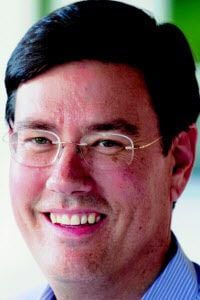PHOENIX — State senators voted Monday to do what opponents have argued has been their agenda all along — allow every one of the more than 1 million students in Arizona the opportunity to attend private and parochial schools with tax dollars.
The 17-13 vote starts the process of removing the restrictions that now exist for vouchers, restrictions that to date limit enrollment in the program to no more than 5,500 students. Current law makes these “empowerment scholarship accounts” available only to students with special needs, those living on reservations and youngsters in schools rated D or F.
By the 2018 school year, all restrictions would be gone. And the following year, the numerical cap on vouchers, currently 0.5 percent of all students in public schools, self-destructs.
The only restriction that would be left is that a student first has to attend a public school. But that need not be for more than 100 days. And it could be in kindergarten.
“It’s a huge step forward for school choice for our parents and students throughout the state,” said Sen. Debbie Lesko, R-Peoria, the prime sponsor of SB 1279.
Sen. Steve Farley, D-Tucson, had a different take.
“This is the end of public education in Arizona,” he said, calling it “an abomination.”
Farley pointed out that the first vouchers were approved in 2011 for “a small number of kids with very specific needs.
“Let’s be clear on what this is,” Farley said. “This blows that out of the water.”
He also said the timing could not be worse.
Farley pointed out the legislation comes ahead of a May 17 special election for Proposition 123. Voters are being asked to divert money already in an education trust account to make up for the fact that lawmakers failed to comply with a voter-approved law to increase state aid to public schools annually to account for inflation.
“If we think we’re going to get voters to vote on (Proposition) 123 at the same time as we’re gutting our public school system with bills like this that would devastate the public school system, I don’t know how we think we’re going to make that sale,” Farley said.
Lesko said the move saves money.
She said the average voucher for a student without special needs is about $5,000 a year. By contrast, Lesko put total aid to public schools in excess of $9,000 a year per student.
But that includes money raised by local taxpayers as well as federal aid. The most recent state aid figures, according to legislative analysts, comes to about $5,400 per student.
And Farley said all that ignores the fact that there will be children for whom going to a private or parochial school is not a realistic option.
Those schools generally do not provide transportation. And Farley said not all parents make the right decisions for their children.
He said that leaves those children in a system with “decaying infrastructure, lack of computers, lack of teachers, lack of books.”
“And we end up with the ghettoization of public education,” Farley said.
Farley said the empowerment scholarship program has had problems with fraud and the lack of accountability in ensuring that parents are spending the money properly.
He said the Department of Education, which is supposed to monitor the outlays, cannot keep pace with what is already out there. Farley said there is no way it will be able to track the dollars once the program is open to everyone.
Lesko said foes always paint the worst possible picture.
She said there were similar arguments when Arizona allowed the formation of charter schools. These are technically public schools but can be run by private, for-profit companies.
They are exempt from some of the requirements placed on traditional public schools, like having to hire people who are certified as teachers. But unlike private and parochial schools, they cannot charge tuition beyond the state aid they get and cannot pick and choose which students they accept.
Lesko also said there was opposition to open enrollment. That allows a student to attend any public or charter school in the state that has room rather than the local neighborhood school.
“And they’re extremely popular,” Lesko said of both laws. “People love them.”
The original 2011 law — the one giving vouchers to special-needs students — was challenged by the Arizona Education Association as violating a state constitutional provision that bars public funds from being used for religious worship or instruction.
But the state Court of Appeals said it is the parents who decide where to spend the dollars. The judges said that makes who ultimately gets the dollars irrelevant.
Even then, proponents of that law conceded they were just trying to get their foot in the door.
Rick Murphy, then a state senator from Glendale, said that once all the legal hurdles are overcome, he wants the program to become the template for providing the same option for children statewide.
And Tim Keller, attorney for the Institute for Justice, which intervened to defend the program, said the court ruling means “there’s no constitutional impediment to expanding this program.”







